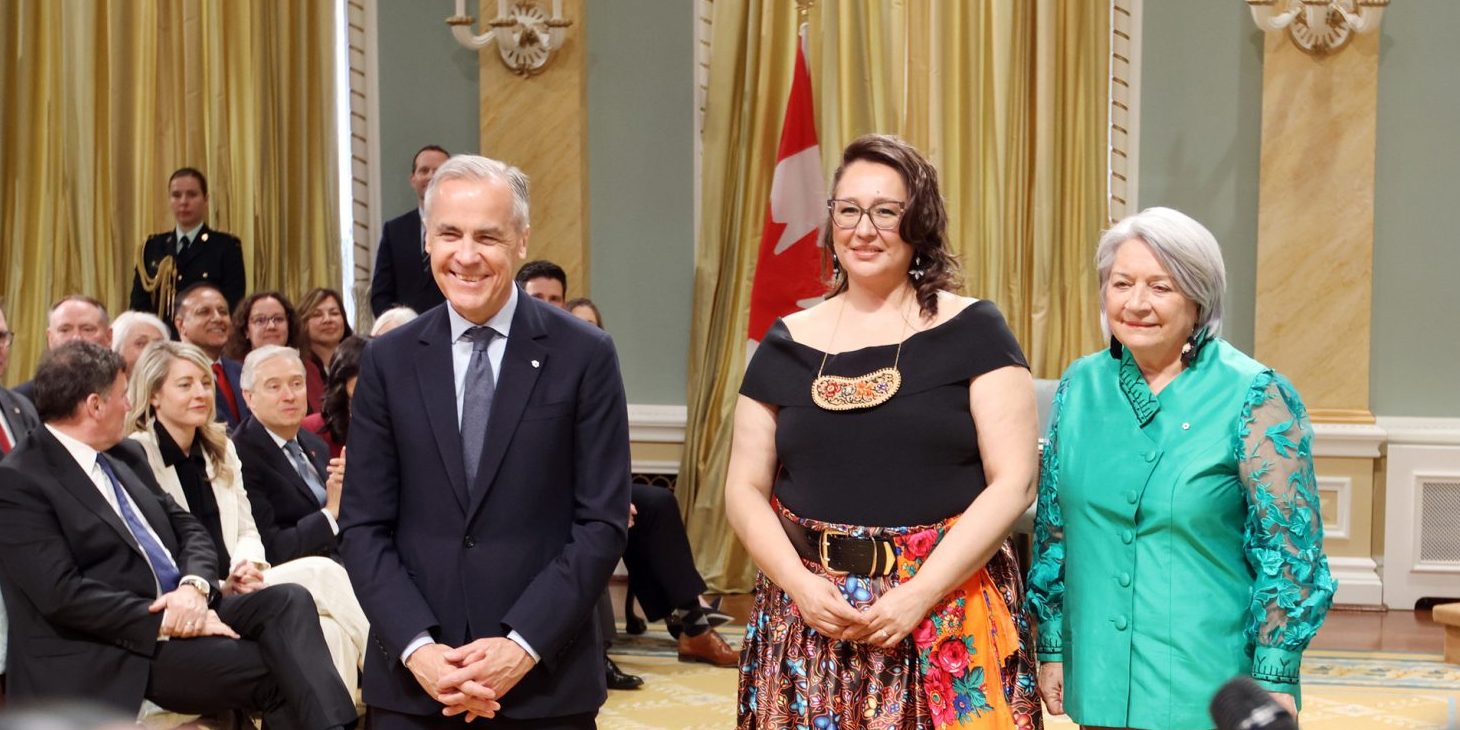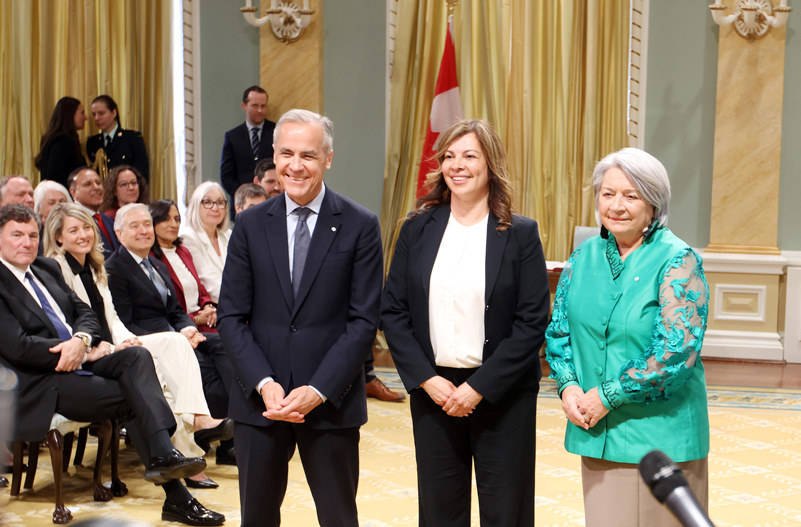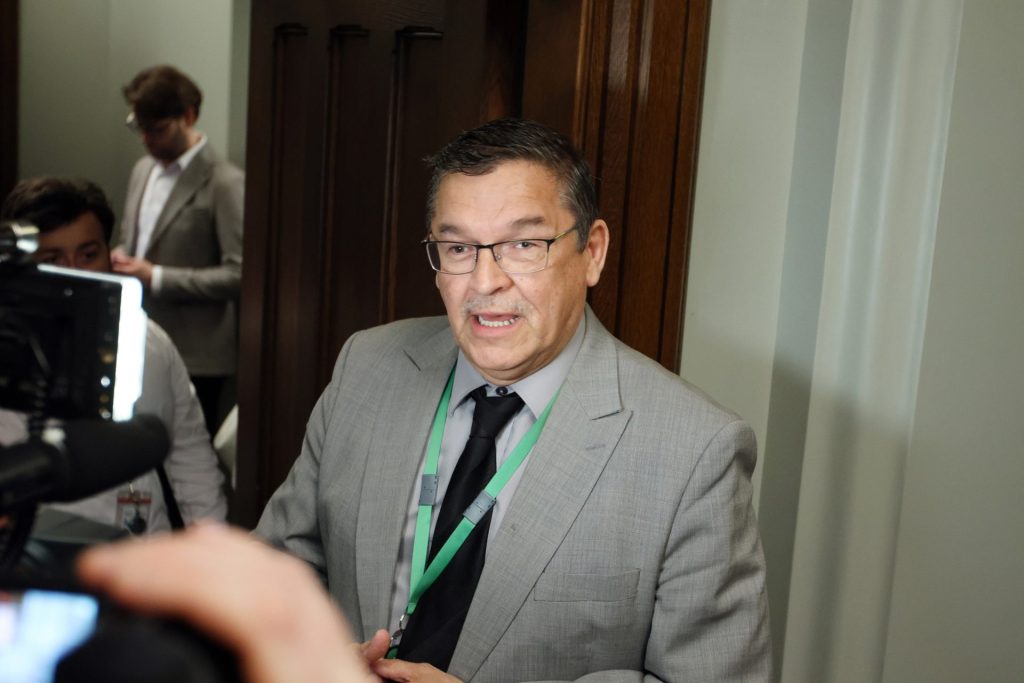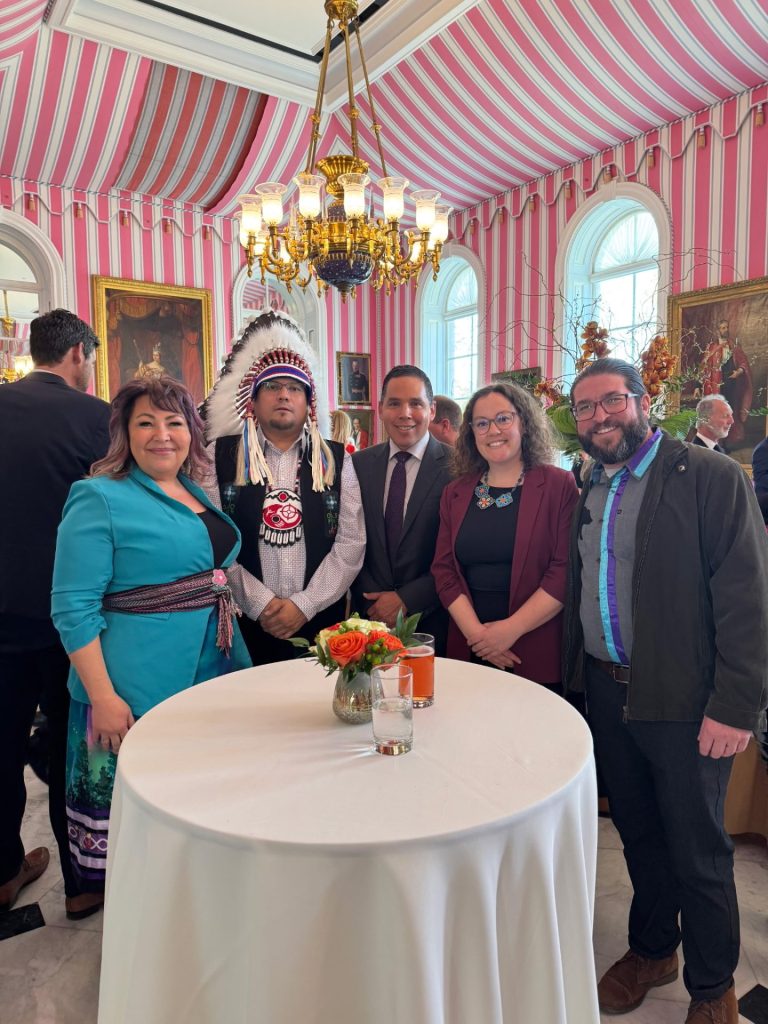Indigenous Services Minister Gull-Masty says she’s eager to ‘succeed’ under ‘huge pressure,’ as Indigenous leaders welcome ‘progress’ in cabinet picks

Having three Indigenous ministers in cabinet is cause for “cautious optimism,” say Indigenous leaders, some of whom welcome the “lived experience” on Prime Minister Mark Carney’s senior team, but warn that blame for government inaction should not fall at their feet.
Among the files handed to this trio of ministers is the oversight of Indigenous Services Canada, a move that makes first-time MP and former grand chief Mandy Gull-Masty (Abitibi-Baie-James-Nunavik-Eeyou, Que.) the first Indigenous person to helm the ministry.
Gull-Masty said she’s in for a “pretty steep” learning curve, pointing to the need to familiarize herself with her duties as an MP, but also her duties as a minister, saying that she’s already feeling the pressure to succeed as the first Indigenous person in the role.
“There is not only going to be … a lot of eyes watching what I do—what I chose to do, how I chose to do it—but there’s a huge pressure from myself as well,” she said in an interview with The Hill Times on May 19. “I want to succeed.”
Prior to unseating two-time Bloc Québécois incumbent Sylvie Bérubé in northern Quebec, Gull-Masty served as the grand chief for the Grand Council of the Crees (Eeyou Istchee) in Quebec for four years, and was the first woman to hold the position.
Gull-Masty was among two other Indigenous cabinet members sworn in on May 13 at Rideau Hall. Rookie MP Rebecca Chartrand (Churchill–Keewatinook Aski, Man.) was given the file for northern and arctic affairs, and Buckley Belanger (Desnethé–Missinippi–Churchill River, Sask.) is responsible for rural development as a secretary of state—a junior position Carney revived after almost a decade without secretaries of state under his predecessor Justin Trudeau.
Chartrand, who is Anishinaabe from Treaty Four territory in Manitoba, also flipped a seat red this election, ousting long-time former NDP MP Nikki Ashton with a decisive 45.5 per cent of the vote. As minister, Chartrand will also be responsible for the Canadian Northern Economic Development Agency. Before being elected, Chartrand was the CEO and president of the organization Indigenous Strategy, aimed at improving Indigenous inclusion at the community, policy, and education level.

Belanger, who was the sole Liberal MP elected in Saskatchewan and who is of Métis descent, is also a first-time MP, having run and lost in 2021 against then-Conservative MP Gary Vidal, who opted against running for re-election this year. But Belanger is no stranger to politics. Before running as a Liberal candidate at the federal level, he served as an MLA in Saskatchewan under the NDP for 26 years, switching to federal politics in 2021.

Gull-Masty is the first Indigenous minister to oversee Indigenous services—but she’s not the first to have been offered the post. Trudeau offered the role to Jody Wilson-Raybould in 2019—one of two Indigenous cabinet members at the time—but Wilson-Raybould refused, citing her opposition to the Indian Act, which has been used to force colonial and harmful policies on Indigenous communities. The amended act remains in effect today, and requires administration as part of the minister of Indigenous services’ file.
When asked if she had hesitations about accepting the post for similar reasons, Gull-Masty said that Wilson-Raybould “had her own decision-making process,” but that she “immediately said yes” when offered the job.
“Immediately I saw [it] as one of the most important tasks, one of the most challenging tasks,” she said. “This is why I confirmed instantly because I knew the significance of what was being asked.”
Gull-Masty also said that, having been on the other end of the process as grand chief representing one of the few Indigenous communities in Canada to enjoy a form of regional self-governance, she brings a different level of understanding to the post.
“I want people to understand that I have received services from this ministry as a former grand chief,” she said. “I know what it means when you make a decision at the desk in Ottawa, and what that translates to in community … My first priority and objective within the ministry is to close that gap.”
Cabinet picks equal ‘huge progress,’ says NWAC
Josie Nepinak, president of the Native Women’s Association of Canada, said that the appointment of three Indigenous cabinet members makes her “very optimistic” that things will improve from the previous Trudeau government, which often saw non-Indigenous ministers leading Indigenous files.
“I’m optimistic that we are moving towards a better direction,” she told The Hill Times. “Three [cabinet members] is progress, in my opinion—huge progress.”
“I think it takes away the paternalism,” she continued. “The paternalistic, you know, ‘we will do it for you because we know better than you.’ It removes that piece, that barrier, that we’ve … felt.”
Prior to Gull-Masty’s appointment, Patty Hajdu (Thunder Bay-Superior North, Ont.) held the Indigenous services file. Hajdu was first appointed to the position in 2021 under Trudeau, and initially retained the portfolio as part of Carney’s first cabinet picks, before being reshuffled to minister of jobs and families on May 13.
Former Yellowknife mayor and first-time MP Rebecca Alty has been tapped to head Crown-Indigenous relations in Carney’s cabinet. Alty is not Indigenous, but is the elected MP for the Northwest Territories, which is home to a large Indigenous population—an appointment that suggests a focus on the North.

Brendan Moore, the national chief of the Congress of Aboriginal Peoples, expressed a similar sentiment to Nepinak, saying he was feeling a sense of “cautious optimism” about the cabinet appointments. But Moore said he hopes that his organization—which represents Indigenous people living off of reserves, including those without status—will be brought to the table more in the future, saying he was not granted a meeting with any of Trudeau’s former ministers, despite his attempts.
“I think it’s really important that Indigenous Peoples are leading portfolios when it comes to Indigenous interests,” he said. “I hope for [the new ministers] to be inclusive to all Indigenous Peoples, regardless of distinction, residence or status, and that they consider all Indigenous peoples equitably.”
Natan Obed, president of Inuit Tapiriit Kanatami, said it is “wonderful that Prime Minister Carney … has elevated Indigenous considerations in the areas that affect us most,” with his cabinet picks, but emphasized that there is still difficult work ahead for the ministers.
“These are incredibly difficult files. … I can’t imagine going into government and being a minister—and also being a minister for these contentious areas on day one,” he said.
“There are still really difficult challenges within these portfolios that tie into historic inequity, ongoing racism, and a still-evolving governance piece between the rights of Indigenous Peoples and the running of a nation state like Canada.”
Still, Obed said he was glad to see Indigenous women “stepping up and accepting” the roles, also pointing to Carney’s “northern experience”—citing his birth in the Northwest Territories—as a hopeful sign.
“There’s sometimes a fear that those who lead this country have no experience with Indigenous Peoples, or the Arctic, or the North,” he said. “So, I’m quite thankful that Prime Minister Carney had that lived experience.”
Mitch Case, president of the Métis Nation of Ontario, said that while he sees the appointment of more Indigenous ministers as a “potential step forward,” he worries that Gull-Masty could fall prey to being unfairly blamed should she run into struggles in her role.
“I don’t want to see her become the face of the government’s inaction,” Case said. “It isn’t just … the minister, it’s also the cabinet and then the bureaucracy’s ability to actually deliver on things.”
“If the Government of Canada can’t get its act together … I don’t want to see that become hurtful,” he continued. “We don’t blame the last 150 years of white ministers, so let’s not line up … to blame her if something doesn’t work.”
For Gull-Masty, the upcoming weeks may be challenging. To prepare, the new minister said she would be spending time at her camp over the long weekend connecting with “the land,” where she said her “identity comes from.”
“There’s a lot of good energy, there’s a lot of healing, there’s a lot of reflection, when you’re in your traditional territories.”
ewand@hilltimes.com
The Hill Times






 LICENSING
LICENSING PODCAST
PODCAST ALERTS
ALERTS













